Comprehensive Guide to Garden Maintenance in Norwood
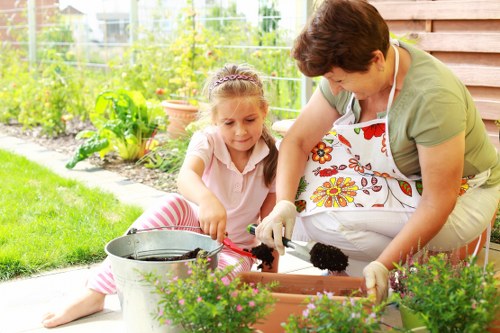
Maintaining a beautiful garden in Norwood requires dedication, knowledge, and the right set of tools. Whether you're a seasoned gardener or a beginner, understanding the unique climate and soil conditions of Norwood is essential for thriving plants and vibrant landscapes.
In this comprehensive guide, we'll explore various aspects of garden maintenance tailored specifically for Norwood's environment. From seasonal planting schedules to pest control, we've got you covered.
Why Proper Garden Maintenance Matters
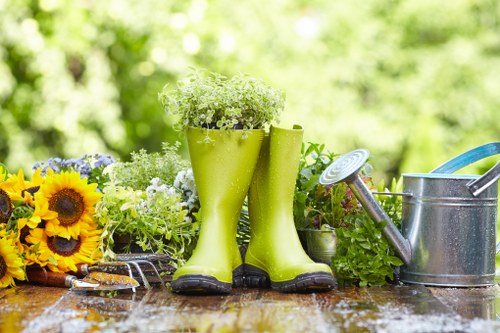
The Importance of Regular Gardening Tasks
Consistent garden maintenance not only enhances the aesthetic appeal of your outdoor space but also promotes plant health and longevity. Regular tasks help prevent issues before they escalate, ensuring that your garden remains lush and vibrant throughout the year.
Effective garden maintenance involves a combination of pruning, weeding, mulching, and proper watering techniques. Each of these tasks plays a crucial role in maintaining the overall health of your garden.
Benefits of Routine Maintenance:
- Prevents plant diseases
- Enhances soil fertility
- Reduces weed growth
- Promotes healthy plant growth
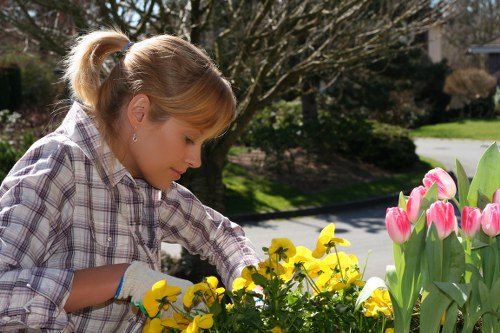
Seasonal Garden Care in Norwood
Understanding the seasonal changes in Norwood is key to effective garden maintenance. Each season presents unique challenges and opportunities for your garden.
Spring Maintenance
Spring is a time of renewal. Start by cleaning up any debris left over from winter and preparing your soil for new plantings.
Steps for Spring:
- Clear out dead leaves and branches
- Test and amend the soil as needed
- Plant spring bulbs and perennials
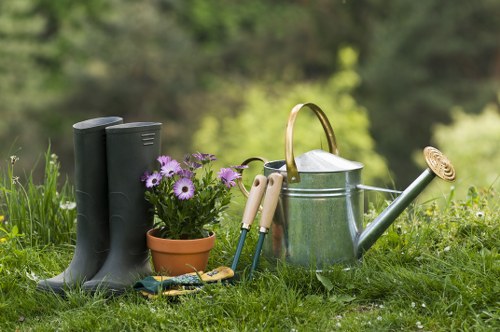
Essential Tools for Garden Maintenance
Having the right tools can make garden maintenance tasks more efficient and enjoyable. Investing in quality tools ensures longevity and better performance.
Must-Have Gardening Tools:
- Pruning shears
- Garden gloves
- Spade and shovel
- Watering hose with adjustable nozzle
Tip: Regularly maintain your tools by cleaning and sharpening them to extend their lifespan.
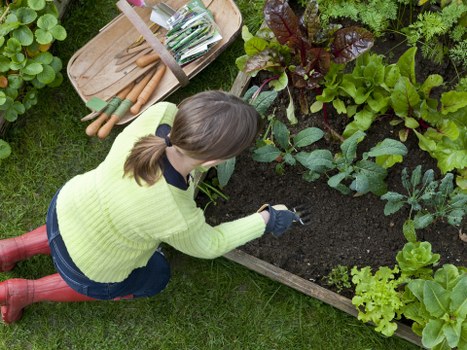
Pest and Disease Management
Pests and diseases can wreak havoc on your garden if not managed promptly. Implementing an integrated pest management strategy can help keep unwanted visitors in check.
Common Pests in Norwood:
- Aphids
- Slugs and snails
- Spider mites
Use organic pesticides and natural remedies to minimize harm to beneficial insects and the environment.
Mulching and Soil Health
Mulching is a vital component of garden maintenance. It helps retain soil moisture, suppress weeds, and regulate soil temperature.
Benefits of Mulching:
- Improves soil structure
- Reduces water evaporation
- Enhances nutrient retention
Recommendation: Use organic mulches such as bark, straw, or compost to enrich the soil as they decompose.
Irrigation and Water Management
Proper watering techniques are essential for maintaining a healthy garden. Overwatering or underwatering can lead to plant stress and increased susceptibility to diseases.
Watering Tips:
- Water early in the morning to reduce evaporation
- Use drip irrigation systems for efficient water usage
- Monitor soil moisture levels regularly
Efficient water management not only conserves water but also ensures that your plants receive the right amount of hydration.
Pruning and Deadheading
Regular pruning keeps your plants healthy and encourages new growth. Deadheading, the removal of spent flowers, promotes continuous blooming.
How to Prune:
- Use clean, sharp tools to make precise cuts
- Remove dead or diseased branches first
- Shape the plant to improve air circulation
Note: Different plants have specific pruning requirements, so it's important to research each type accordingly.
Soil Testing and Fertilization
Regular soil testing helps determine nutrient deficiencies and pH levels, allowing you to amend the soil appropriately.
Steps for Soil Testing:
- Collect soil samples from different areas of your garden
- Send samples to a local extension service or use a home testing kit
- Analyze the results and apply fertilizers or soil conditioners as needed
Fertilization Tips:
- Choose fertilizers based on your soil test results
- Apply fertilizers during the growing season for maximum effect
- Avoid over-fertilizing to prevent nutrient runoff
Landscape Design and Planning
A well-planned landscape not only looks appealing but also supports efficient garden maintenance. Consider factors like plant selection, layout, and sustainability when designing your garden.
Design Tips:
- Select native plants that thrive in Norwood's climate
- Create designated zones for different plant types
- Incorporate hardscaping elements like pathways and patios
Pro Tip: Incorporate perennial plants to reduce the need for annual replanting.
Organic Gardening Practices
Adopting organic gardening practices promotes a healthy ecosystem and reduces the reliance on chemical pesticides and fertilizers.
Organic Practices Include:
- Composting kitchen and garden waste
- Using natural pest repellents like neem oil
- Employing crop rotation to prevent soil depletion
Embracing organic methods not only benefits your garden but also contributes to environmental sustainability.
Conclusion and Next Steps
Effective garden maintenance in Norwood involves a combination of regular tasks, proper planning, and sustainable practices. By following the guidelines outlined in this article, you can create and maintain a thriving garden that brings beauty and joy to your outdoor space.
Ready to transform your garden? Contact us today to schedule a consultation with our expert gardening team.
